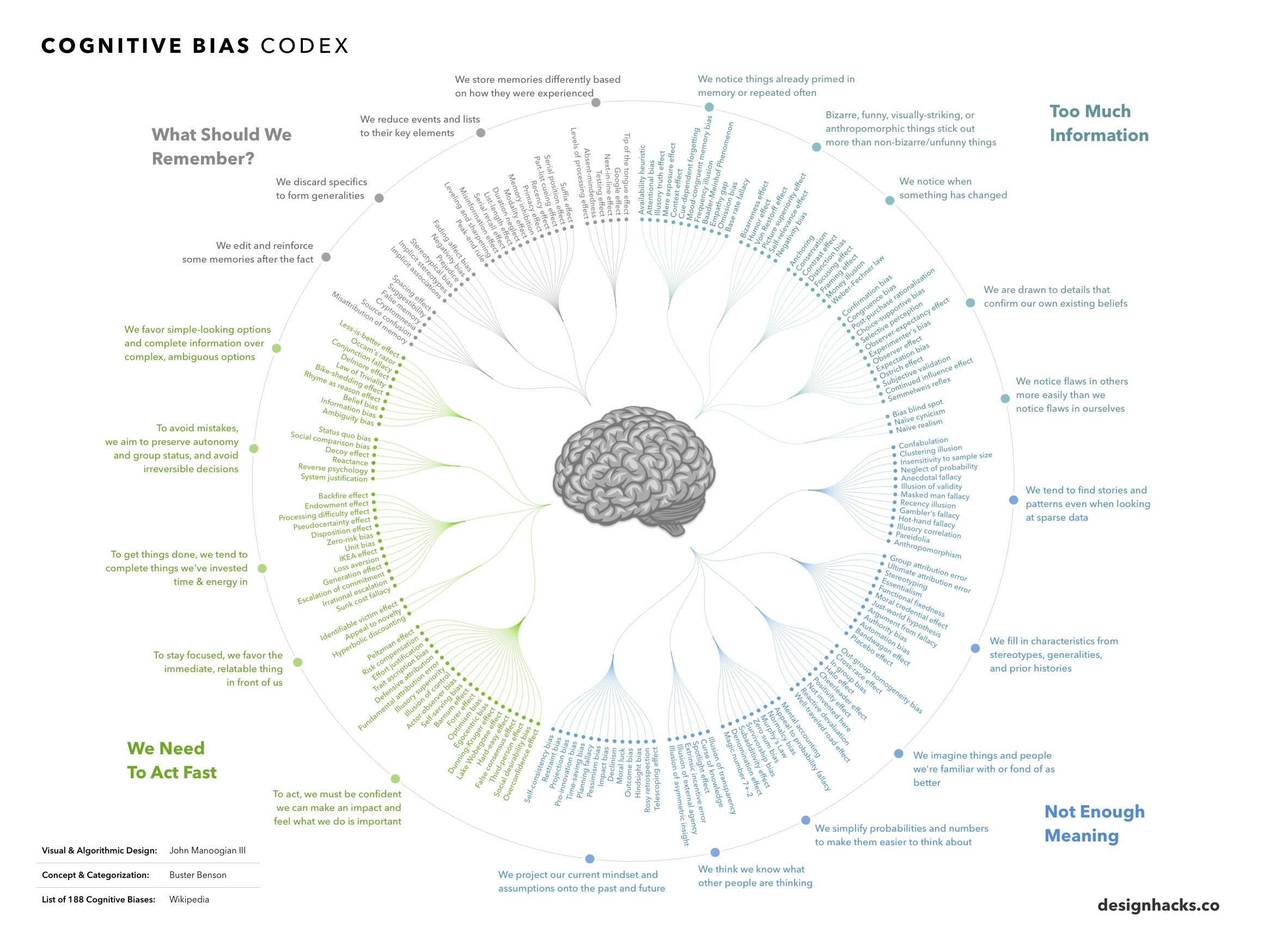Entrepreneurs have chosen to function daily in conditions that would make less risk-tolerant humans queasy. There’s a lot of rewiring that goes into successful entrepreneurship, but our brains are tricksy and spend a lot of time looking for patterns and then feeding us flawed info.
A cognitive bias is usually built out of our minds’ desire to find processing shortcuts and influences from our environment. In everyday situations these kinds of hot key shortcuts can help us. We don’t have to figure out how to drive from scratch every morning, we have little trouble recognizing a dog for a dog, and we can pretty successfully get our pants on and choose dinner.
The problem is that these shortcuts masquerade as rationality, logic, and inspired thinking. They aren’t any of those things. They serve an adaptive purpose, allowing us to respond to threatening situations quickly, but they also open us to errors of judgement.
Like the infographic above shows, there are dozens of specific cognitive biases. There are a few that entrepreneurs fall prey to frequently, though, and it’s a worthwhile exercise to see if you’re using any of them.
Today, let’s talk about the Self-Attribution Bias. Are you great? Of course you’re great! You’ve built a company and even when you’re worried or times are hard you’re steering a course toward success. You are the reason all the good things happen, right? Well, no. You’re up in front, so it’s easy to think that when a deal goes well or a windfall of clients appears you’ve done something very right. That stuff feels like it’s all because of your actions. However, it’s easy to forget market trends, the choices made by your competitors, the support of your team, or blind luck. When things go wrong, though, it’s both comforting and simple to blame forces outside your person.
You’re suffering from the Self-Attribution Bias if you’re responsible for all the good and none of the bad. The truth is much more nuanced than that and it’s your job to go looking for it. Self-confidence is good, self-attribution is blind.

